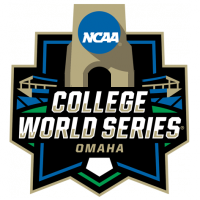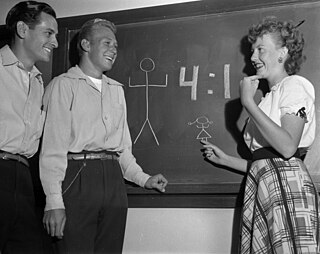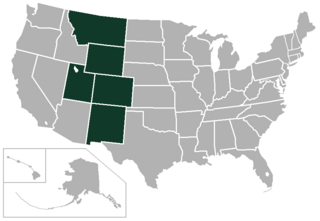
The Pac-12 Conference is a collegiate athletic conference that operated in the Western United States. Its twelve members are located in the states of Arizona, California, Colorado, Oregon, Utah, and Washington. They include each state's flagship public university, four additional public universities, and two private research universities. The Pac-12 participates at the National Collegiate Athletic Association (NCAA) Division I level for all sports, and its football teams competes in the Football Bowl Subdivision, the highest level of NCAA football competition.

The Big Eight Conference was a National Collegiate Athletic Association (NCAA)-affiliated Division I-A college athletic association that sponsored football. It was formed in January 1907 as the Missouri Valley Intercollegiate Athletic Association (MVIAA) by its charter member schools: the University of Kansas, University of Missouri, University of Nebraska, and Washington University in St. Louis. Additionally, the University of Iowa was an original member of the MVIAA, while maintaining joint membership in the Western Conference.
Citrus College is a public community college in Glendora, California. The Citrus Community College District, which supports the institution, includes the communities of Azusa, Claremont, Duarte, Glendora and Monrovia. Founded in 1915 by educator Floyd S. Hayden, Citrus College is the oldest community college in Los Angeles County, California, and the fifth oldest in the state of California. Until 1961, the school was operated by the Citrus Union High School District and served the local area as both a high school and a junior college.

The College World Series (CWS), officially the NCAA Men's College World Series (MCWS), is a baseball tournament held each June in Omaha, Nebraska. The MCWS is the culmination of the National Collegiate Athletic Association (NCAA) Division I Baseball Championship tournament—featuring 64 teams in the first round—which determines the NCAA Division I college baseball champion. The eight participating teams are split into two, four-team, double-elimination brackets, with the winners of each bracket playing in a best-of-three championship series.
The Women's College World Series (WCWS) is the final portion of the NCAA Division I softball tournament for college softball in the United States. The eight teams of the WCWS play a double-elimination tournament until just two teams remain. These two teams compete in a best-of-three series to determine the Division I WCWS National Champion, previous WCWS losses do not factor into the best of three championship series, first team to win two of three games is declared the 'National Champion'.

In United States colleges and universities, basketball is governed by collegiate athletic bodies including the National Collegiate Athletic Association (NCAA), the National Association of Intercollegiate Athletics (NAIA), the United States Collegiate Athletic Association (USCAA), the National Junior College Athletic Association (NJCAA), and the National Christian College Athletic Association (NCCAA). Each of these various organizations is subdivided into one to three divisions, based on the number and level of scholarships that may be provided to the athletes. Teams with more talent tend to win over teams with less talent.
Big Six or Big 6 may refer to:

Rowing is the oldest intercollegiate sport in the United States. The first intercollegiate race was a contest between Yale and Harvard in 1852. In the 2018–19 school year, there were 2,340 male and 7,294 female collegiate rowers in Divisions I, II and III, according to the NCAA. The sport has grown since the first NCAA statistics were compiled for the 1981–82 school year, which reflected 2,053 male and 1,187 female collegiate rowers in the three divisions. Some concern has been raised that some recent female numbers are inflated by non-competing novices.

Glendale Community College (GCC) is a public community college in Glendale, California.

The Skyline Conference was a college athletic conference based in the Western United States that was active from December 1937 to June 1962. The conference's formal name was the Mountain States Athletic Conference, although it was also known as the Mountain States Conference along with informal but popular nicknames. It is unrelated to the contemporary Skyline Conference that is active in NCAA Division III in the New York City area.

The Pacific Coast Conference (PCC) was a college athletic conference in the United States which existed from 1915 to 1959. Though the Pac-12 Conference claims the PCC's history as part of its own, with eight of the ten PCC members now in the Pac-12, the older league had a completely different charter and was disbanded in 1959 due to a major crisis and scandal.
Sierra College is a public community college in Rocklin, California. It is part of the Sierra Joint Community College District, a district that covers over 3,200 square miles (8,300 km2), serves Placer, Nevada and parts of El Dorado and Sacramento counties.

The National Junior College Athletic Association (NJCAA), founded in 1938, is the governing association of community college, state college and junior college athletics throughout the United States. Currently the NJCAA holds 24 separate regions across 24 states and is divided into 3 divisions.
Big Eight or Big 8 may refer to:

Jesse Terrill Hill was an American athlete, coach, and college athletics administrator who was best known for his tenure as a coach and athletic director at the University of Southern California (USC). His career spanned six decades. He played as an outfielder in Major League Baseball from 1935 to 1937, coached two national championship teams in track and field, and went on to become the first person to both play for and coach Rose Bowl champions.
The North Central Conference was a college athletic conference that operated in the United States.
South Central Conference may refer to:
The Big Eight Conference was a junior college athletic conference with member schools located in the San Francisco Bay Area and Central California that operated from 1950 to 1962. The conference began operation as the Big Seven Conference for the 1950–51 basketball season. The conference's initial seven members were Modesto Junior College, Sacramento City College, City College of San Francisco (CCSF), the College of San Mateo, Santa Rosa Junior College, Stockton College—now known as San Joaquin Delta College, and West Contra Costa Junior College—now known as Contra Costa College. Oakland City College joined as the league's eighth member for the 1954–55 basketball season. The Big Eight Conference dissolved in 1962. Four of its members—CCSF, Contra Costa, Oakland City, and San Mateo—joined the newly-formed Golden Gate Conference. Three members—Modesto, Stockton, and Sacramento City—joined the incipient Valley Conference. Santa Rosa joined the Golden Valley Conference.









